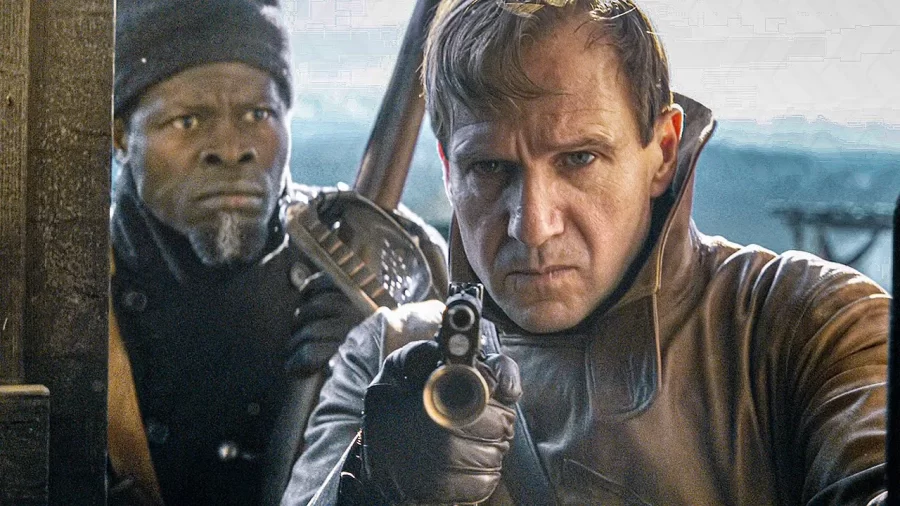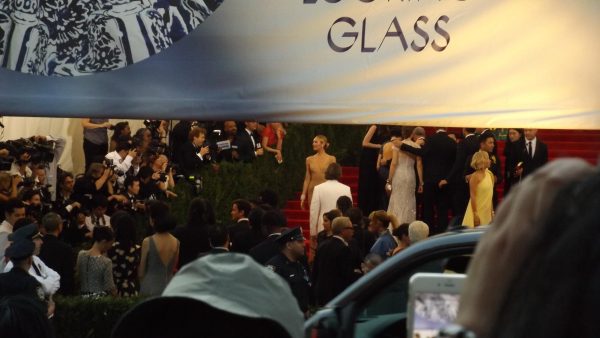The King’s Man – A Decent Diversion from a Dying Dynasty
The King’s Man had been trapped in production hell for years. From Disney buying 20th Century Fox to the pandemic shutting down theaters, this film has had its fair share of delays.
I can attest to being excited to see the adrenaline-fueling, hilarious hijinks of the Kingsman franchise in a WWI setting when the first trailer was released in the summer of 2019, but when the movie wasn’t released until more than two years later, the hype had definitely gone down. I went in with modest expectations, and, over the course of the film, they fluctuated from being slightly exceeded to slightly missing the mark. The first Kingsman, back in 2014, was a masterpiece of action comedy, and its sequel, in 2017, was a superficial, pathetic attempt at replicating the original’s flair. This prequel, featuring none of the original cast, gives us something in-between: a forgettable, yet enjoyable addition to a fading franchise.
The prequel focuses on Ralph Fiennes’ character, the Duke of Oxford, and his son Conrad. Ever since Conrad’s mother died when the family visited a British concentration camp during the Second Boer War (the moral implications of which are hastily glossed over), Conrad has always wanted to join the military, but his father has never wanted to let him, out of protective instinct. And that’s Conrad’s entire character. Nothing more to him than that. He’s not particularly cool, funny, adorable, or sympathetic. Every unfortunate situation he’s put into is almost always his own doing. The Duke, however, is charming and suave as can be. He’s a lot less sympathetic than Eggsy, the protagonist of the previous films, because unlike Eggsy’s journey from rags to riches, the Duke is well-connected from the very start. It’s also refreshing to see Ralph Fiennes—known for despicable, villainous roles such as Lord Voldemort or Amon Goeth from Schindler’s List—finally take the lead in his own action franchise.
Obviously, no action movie is complete without a best friend and a love interest, but for this film, I use those terms very loosely. The Duke is accompanied by two of his house staff, who work for him, so I don’t know if we can fully say their relationship is genuine. Djimon Hounsou, known for a plethora of minor roles in all the major franchises, excellently plays Shola, the right-hand man, and Bond girl Gemma Arterton plays the Duke’s love interest, who has barely any chemistry with him, causing their eventual kiss to come out of left field. She plays the typical “why are boys always so messy,” one-dimensional femme fatale that we’ve seen a million times.
In terms of honoring the previous installments of the franchise, The King’s Man is a mixed bag. The pacing is way off; we’re given far too much unnecessary exposition, and the first interesting action scene is halfway into the film. But as always, the signature Matthew Vaughn action choreography is splendid. At this point, is simply splendid enough? This movie is aware that it’s a Kingsman film, tiring out the fun little gag of zooming in on an object, and then zooming out on a similar object in a different location. It also echoes iconic phrases like “Manners Maketh Man” and transforms “Looking good, feeling good,” to “Looking better, feeling better.” But it’s definitely not better, or even the same. The original Kingsman films parodied the traditional spy flick, poking fun at James Bond and Jason Bourne. The King’s Man is, in many ways, the very thing its predecessors were teasing: taking itself far too seriously without the originality to back it up.
Let’s talk about representation. One of my biggest criticisms of the previous Kingsman films is that every single person in the Kingsman secret service was white. There was only one woman, Roxy, and she was killed off immediately in the second film. This film has much larger roles for diverse groups, which is a bit ironic considering it takes place during a time in which discrimination was far more rampant than today. The true representation issue lies within the villains. It’s important to note that the film takes creative liberties with actual world history; it makes fun little embellishments like having the Kingsmen purposely swat away the bomb aimed at Franz Ferdinand instead of it bouncing off the car, or having the cousins King George, Kaiser Wilhelm, and Tsar Nicholas all be played by the same actor. I actually commend the film for making such a bold choice; the issue lies not within the execution, but the subtext. For example, Rasputin is now the only openly queer character in the entire Kingsman franchise, and he’s portrayed as an impulsive, pedophilic pervert. The antagonists are all part of a secret cabal responsible for the events of WWI, and their leader, The Shepherd, is the only one who is not a real human being who actually existed. Members include Grigori Rasputin (who convinced the Tsar to join the war in real life), Gavrilo Princip (who killed Franz Ferdinand in real life), Vladimir Lenin (you should know this communist if you read “Animal Farm”), and German spy/actress Mata Hari (who the film insists seduced Woodrow Wilson into not joining the war). So if you’re a big fan of our 28th President and want his portrayal to be accurate, this film might not be for you.
But the real kicker is the post-credit scene. Spoilers forthcoming—buckle up. After almost all of the villains have been killed, Lenin and Hanussen (the Austrian Jew who advised the Weimar Republic) are scheming, and announce that their evil little group has a new successor. A shadowy figure approaches. Lenin asks who he is, and he reveals himself to be … Adolf Hitler??? Are you actually kidding me? I laughed out loud in shock when I saw this. Maybe you haven’t heard, but Hitler tends to be a bit of a touchy subject for audiences. Films like Jojo Rabbit or Inglourious Basterds handle him very well by immediately detaching their stories from reality and making it clear his character is not to be taken seriously whatsoever. However, all the villains in The King’s Man were both exaggerated versions of themselves as well as menaces to be taken seriously. You can’t have it both ways like that with Hitler, or it trivializes the atrocities he committed. Plus, it muddles things together having Hitler be friends with Lenin, when they publicly hated each other. Although I admire the film’s nerve to put this in here, and I truly can’t believe I need to say this, Hitler is not a sustainable villain for a fictional action franchise.
Harsh but true statements ahead: The Shepherd reveals himself only in the finale, but it’s not satisfying because the reveal has no emotional connection to any of the main characters. The action is derivative; Conrad’s WWI adventures are just 1917 but worse, and the Duke’s suspenseful cliff-climbing scene is taken straight out of Mission Impossible: Fallout. One of the defining shots of the final battle was already featured in the trailer, so it wasn’t much of a surprise when it came up. Instead of having the mentor be killed by the villain, prompting the young hero to avenge his death, this movie kills off the son—a clever subversion of the original. But it doesn’t exactly hit as hard when the son barely did anything to earn the audience’s admiration, and he’s shot by a random soldier with no affiliation to the villain. Finally, instead of hilariously juxtaposing its action sequences with pop music, The King’s Man utilizes a traditional cinematic score.
I wouldn’t be grilling this film so hard if I didn’t think it had major potential to be more. It’s a fun watch, and this kind of straightforwardness wouldn’t be bad for a normal action movie, but it’s subpar for a Kingsman movie. I’m anxious to see what the future holds for this franchise, but if they want to stay afloat, they need to lean into the fun of the genre. Funnily enough, for a movie about the past, The King’s Man’s defining flaw is forgetting its roots.

Cole Hanover ('23) is a senior at Latin and has written/illustrated for The Forum since 2021. He has always read The Forum throughout his high school...




















































